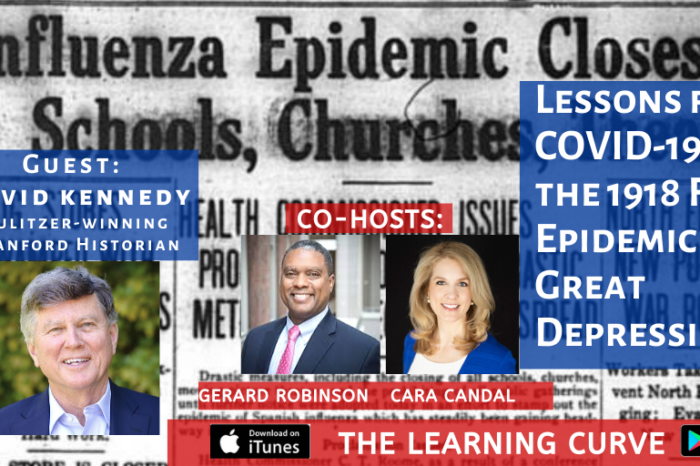Stanford Pulitzer Winner David Kennedy on Lessons for COVID-19 from the 1918 Flu Epidemic & Great Depression
/0 Comments/in COVID Podcasts, Featured, Podcast, rCOVID, US History /by Editorial StaffThis week on “The Learning Curve” Cara and Gerard continue coverage of COVID-19’s impact on K-12 education, joined by Pulitzer-winning historian David Kennedy, the Donald J. McLachlan Professor of History Emeritus at Stanford University. Professor Kennedy describes some of the distinguishing characteristics of the COVID-19 pandemic, compared to the 1918 flu and the Bubonic Plague in terms of rapidity, scale, mortality rate, and death toll. They also delve into differences, such as our society’s technological advancements, that help ease the disruption; governments’ data gathering capacity to fully understand the impact, and ability to mobilize; and the credibility of our leadership and institutions. They explore whether public health crises have received sufficient attention in K-12 history instruction, and what goes unreported in most accounts; and discuss the delicate balance between protecting civil liberties while avoiding the dangers of spreading misinformation.
Stories of the Week: The Florida Virtual School is gearing up to train teachers to deliver over 100 K-12 courses in mathematics, English language arts, history, science, electives, Advanced Placement, and career and technical education to 2.7 million students, at no cost, until June 30. A Gallup survey reveals that 42 percent of parents are concerned about COVID-19 school closures’ negative impact on their child’s education, and 11 percent are not using any educational resources to fill the instructional gap.
Newsmaker Interview Guest:
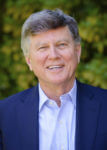 David Kennedy is the Donald J. McLachlan Professor of History Emeritus at Stanford University. Professor Kennedy received the Dean’s Award for Distinguished Teaching in 1988. He is the current editor (since 1999) of the Oxford History of the United States series. Kennedy was awarded the Pulitzer Prize for History in 2000 for Freedom from Fear: The American People in Depression and War. His book Over Here: The First World War and American Society explored America’s political, economic, and domestic life during World War I. Kennedy received his B.A. in History from Stanford University and his M.A. and Ph.D. in American Studies from Yale University.
David Kennedy is the Donald J. McLachlan Professor of History Emeritus at Stanford University. Professor Kennedy received the Dean’s Award for Distinguished Teaching in 1988. He is the current editor (since 1999) of the Oxford History of the United States series. Kennedy was awarded the Pulitzer Prize for History in 2000 for Freedom from Fear: The American People in Depression and War. His book Over Here: The First World War and American Society explored America’s political, economic, and domestic life during World War I. Kennedy received his B.A. in History from Stanford University and his M.A. and Ph.D. in American Studies from Yale University.
Tweet of the Week:
Amid Dispute over Charter School Resolution, President of San Diego of NACCP Chapter Suspended by National Board
by @SDUTmcdonald #CharterSchools #SchoolChoicehttps://t.co/DgTNAegX5F
— Choice Media (@ChoiceMediatv) March 30, 2020
The next episode will air on April 10th with guest, Tim Keller, a Senior Attorney at Institute for Justice.
Newslinks
By May, nearly 3 million Florida K-12 students may be using state’s digital district curriculum | Florida | thecentersquare.com
42% of Parents Worry COVID-19 Will Affect Child’s Education
https://news.gallup.com/poll/305819/parents-worry-covid-affect-child-education.aspx
Get Updates on Our Education Research
Browse All Podcast Episodes:
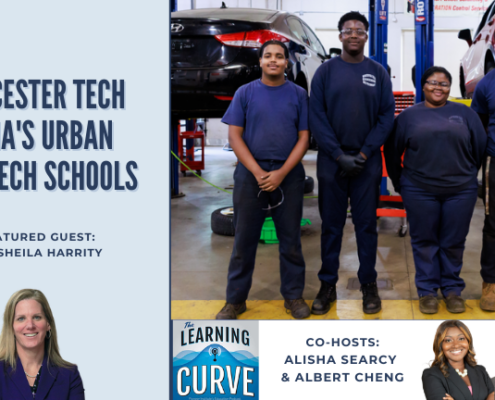
Dr. Sheila Harrity on Worcester Tech & MA’s Urban Voc-Tech Schools
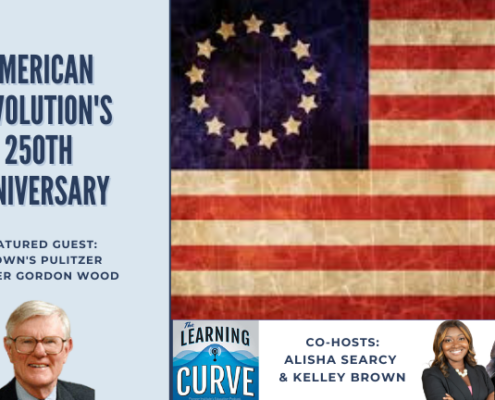
Brown’s Pulitzer Winner Gordon Wood on the American Revolution’s 250th Anniversary

Jeffrey Meyers on F. Scott Fitzgerald & The Great Gatsby’s 100th Anniversary
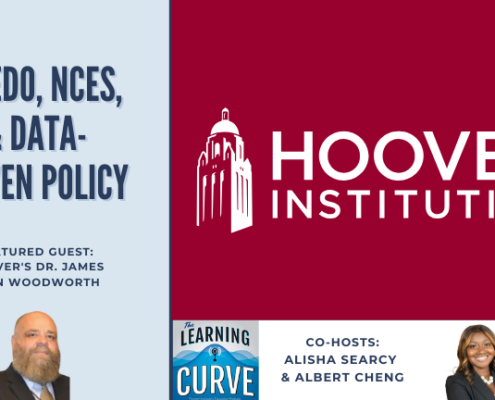
Hoover’s Dr. James Lynn Woodworth on CREDO, NCES, & Data-Driven Policy

UK’s Dr. Paula Byrne on Jane Austen’s 250th Anniversary

EdChoice’s Robert Enlow on School Choice

Frontier Institute’s Trish Schreiber on School Choice & Charter Schools in Montana

UK Oxford’s Robin Lane Fox on Homer & The Iliad

Director/Actor Samuel Lee Fudge on Marcus Garvey & Pan-Africanism

Cornell’s Margaret Washington on Sojourner Truth, Abolitionism, & Women’s Rights

UK Oxford & ASU’s Sir Jonathan Bate on Shakespeare’s Romeo and Juliet & Love

Steven Wilson on The Lost Decade: Returning to the Fight for Better Schools in America

Steven Wilson on The Lost Decade: Returning to the Fight for Better Schools in America

U-Pitt.’s Marcus Rediker on Amistad Slave Rebellion & Black History Month

Notre Dame Law Assoc. Dean Nicole Stelle Garnett on Catholic Schools & School Choice

Alexandra Popoff on Vasily Grossman & Holocaust Remembrance

Stanford’s Lerone Martin on the Rev. Dr. Martin Luther King, Jr. & the Civil Rights Movement

ExcelinEd’s Dr. Kymyona Burk on Mississippi, Early Literacy, & Reading Science

Harvard’s Leo Damrosch on Alexis de Tocqueville & Democracy in America

UK’s John Suchet, OBE, on Tchaikovsky, The Nutcracker, & Ballets

U-OK’s Dan Hamlin on Emerging School Models & Learning Loss

NYT #1 Bestseller Dava Sobel on Marie Curie & Women in Science

Becket Fund’s Eric Rassbach on Loffman v. CA DOE, Religious Liberty, & Schooling

CUNY’s Carl Rollyson on William Faulkner & Southern Literature

NH Gov. Chris Sununu on School Choice

Dr. Helen Baxendale on Great Hearts Classical Liberal Arts Charter Schools

Jeffrey Meyers on Edgar Allan Poe, Gothic Horror, & Halloween


